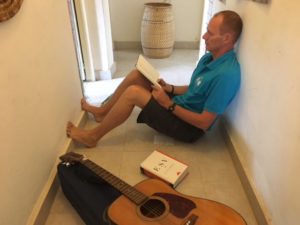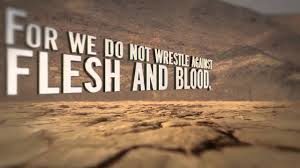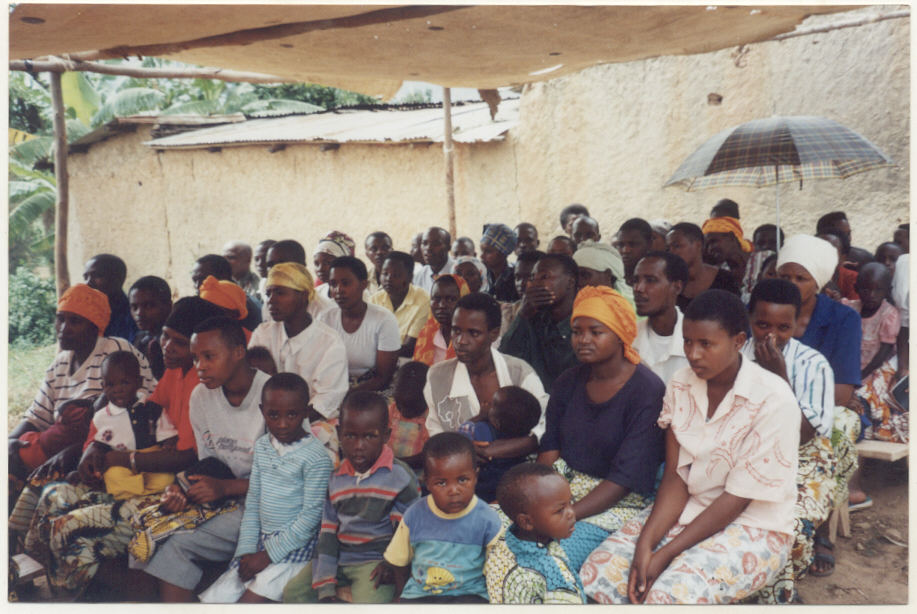I often get asked: “What does a day in Burundi look like for you?” And it’s difficult to answer because my days include a huge range of activities; but at this stage of life, this is the framework I’m trying to implement. What my work actually entails is beyond the scope of this blog.
I’m sharing this with you in the hope that something might strike you, encourage you, challenge you, or help you. Our lives are all different – we have different balls we’re juggling in the air – and we might be at different life stages in different nations, but, most of us would say we lead stressed, cluttered, busy lives and are struggling to get things right.
Well, this is my attempt with Lizzie to ‘get things right’ at our stage of life – married, with children aged 11, 9 and 8, running a big ministry with huge responsibilities and pressures in a volatile country. We’ve bumbled along at different stages feeling like we’ve been more or less effective, frequently failing, but trying to give it our best shot. Please hear it, no judgment from me! I guess being a disciple takes discipline, and discipling our kids takes even more.

The alarm goes at 6am. On weekdays Lizzie and I alternate doing a 1-mile run 610am-620am with Grace who has the goal, in parallel with her friends in England, to do a run each day. Lizzie and I are aware that these are very special years with the children. We can’t waste this time. We need to be intentional. So 630am-645am over breakfast we read ‘Window on the World’, which is a superb resource that tells of an unreached tribe or nation, and then we pray for it. The kids are fascinated, learning more about history and geography, as well as what God is up to in the world. Every other day, we switch that book with ‘Let’s Just Laugh At That’. It’s a book that highlights the lies we so easily believe (e.g. It’s not fair, I can’t control my anger, I’m not good at anything, etc), and then teaches us what God says about it in the Bible, and how to laugh at that lie with our Laughter Blaster or Giggle Grenade or whatever. None of the kids has ever moaned about these times, rather they love them. Those two books will last us another few weeks. If you have suggestions for other such resources, please do comment below.

Lizzie takes the kids to school at 7am. That’s when I get my guitar, Bible, devotional and notebook, and sit on the floor in the corridor (for the acoustics and coolness) for anything from 20mins to an hour usually. George Muller wrote: “The first great and primary business to which I ought to attend every day is to have my soul happy in the Lord.” I need to find shalom, to reach that state in prayer, listening, meditation, worship, before entering a hectic day. That shalom may be challenged within seconds of getting to the office because of some horrific situation that is presented to me that needs addressing, so all the more I desperately guard and crave this time. I have my prayer lists for each day. I have a pen to write whatever comes to me in terms of ideas for sermons or prompts for people I need to get in touch with to encourage, ideas for ministry, etc. We’ve just started a men’s group on Thursdays at 730am so that is the one different day.
A crucial thing for me is to give God my best brain time. I won’t look at emails or social media until after time with the Lord, because then ‘boom!’, my mind is swamped with important stuff (emails) and inanities (social media). I use social media very intentionally for work – it generates significant financial and prayer support – but I can’t kid you or myself, I often get sucked in. God help us! Yes, we are busy, but what kind of business? As John Piper challenges us: “One of the great uses of Twitter/Facebook/Instagram will be to prove on the last day that our prayerlessness was not from lack of time!” I think a lot of us need to address this area of our lives urgently. Feel free to hold me to account!
I have a gloriously short 52-second commute on my motorbike to work! Lizzie says I’m lazy and should walk it, but I say I often have to go on from there to other meetings. I share a pokey office (on purpose as I don’t want to model being the ‘big man’) with two other people. It’s in our conference centre, which is a great networking hub. GLO supports nine organisations as partners, and other groups and initiatives besides, so there’ll be lots of people to meet and plenty of work to get on with.
Kids are back from school after midday so I pop back for lunch at 1230pm. I love the fact that at this stage of life, unless traveling, I usually get to eat three meals a day with family – a privilege that very few others get. I might have a read/snooze for an hour during the hottest part of the day, then back to the office. Hopefully I’ll fit in three gym sessions per week, using that time to listen to a podcast (Flatirons in Colorado is my current favorite, Francis ‘no-diluting-no-compromise’ Chan another).
Supper is at 530pm, and 2-3 times/week we have visitors. Then 630pm-745pm is spent reading with each child individually (for years we did all three of them together but we’ve found recently that the one-on-one time is very special): about 10minutes Bible/notes (some resistance there), and then a book of their choice and currently a chapter from the ‘10 boys/girls who changed the world or made history’ series. After praying them off to bed, we slump down knackered and try not to go to bed by 8pm! The humidity here means we’re always shattered. Social life is very limited so we are rarely out at night (one date night each fortnight), and also security means minimizing trips out in the dark. So we’ll probably watch a DVD series, and then be in bed by 930pm-10pm, at which point we debrief, mind your own business(!), and pray briefly (and it has been known for one of us to fall asleep during the praying itself, such is our tiredness!)

That’s it. Your context will be very different, as I said. There’s no right or wrong way in this. But if you aspire to being a disciple, it will take rigorous discipline. And Jesus didn’t make disciples as an end in themselves, but they were all to disciple others. For those of us who are parents, that starts with our kids. But for all of us, He’s most assuredly got others He wants us to invest in. Who might that be? What does it (or will it) look like? What needs changing/tweaking/initiating? God give us all the grace we need.
So, God bless you on your journey with Jesus with others in tow! God help us all to be disciplined discipling disciples!
I’m interested in your thoughts on this, so do comment and share this with others. It’s so important.



